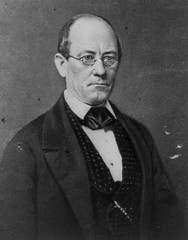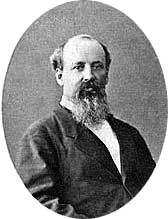 |
| 28th Virginia flag |
- Less than two weeks ago Virginia voted down secession. But now everything has changed with Lincoln inaugurating war on the South and his call for troop quotas of militias from each state in the Union to supply a total of 75,000 volunteers to subdue the insurrection he has declared. Virginia Governor John Letcher rejects Lincoln’s requisition of troops to quell rebellion, and the Virginia Secession Convention meeting at Richmond approves on a first vote of 88-55 the wording of an ordinance of secession to be approved by statewide referendum on May 23. A second vote to ratify the Provisional Confederate Constitution was 103-46 in favor of joining the Confederacy, becoming the eighth state to secede and join the Southern Confederacy. For all intents and purposes, most view Virginia as a seceded state though several formalities must be completed. “AN ORDINANCE to repeal the ratification of the Constitution of the United States of America by the State of Virginia, and to resume all the rights and powers granted under said Constitution.
The people of Virginia in their ratification of the Constitution of the United States of America, adopted by them in convention on the twenty-fifth day of June, in the year of our Lord one thousand seven hundred and eighty-eight, having declared that the powers granted under said Constitution were derived from the people of the United States and might be resumed whensoever the same should be perverted to their injury and oppression, and the Federal Government having perverted said powers not only to the injury of the people of Virginia, but to the oppression of the Southern slave-holding States:
Now, therefore, we, the people of Virginia, do declare and ordain, That the ordinance adopted by the people of this State in convention on the twenty-fifth day of June, in the year of our Lord one thousand seven hundred and eighty-eight, whereby the Constitution of the United States of America was ratified, and all acts of the General Assembly of this State ratifying and adopting amendments to said Constitution, are hereby repealed and abrogated; that the union between the State of Virginia and the other States under the Constitution aforesaid is hereby dissolved, and that the State of Virginia is in the full possession and exercise of all the rights of sovereignty which belong and appertain to a free and independent State.
And they do further declare, That said Constitution of the United States of America is no longer binding on any of the citizens of this State.
This ordinance shall take effect and be an act of this day, when ratified by a majority of the voters of the people of this State cast at a poll to be taken thereon on the fourth Thursday in May next, in pursuance of a schedule hereafter to be enacted.
Adopted by the convention of Virginia April 17,1861./1861
- By 2 o'clock in the morning of April 17, US Colonel Harvey Brown begins a second reinforcement of Fort Pickens at Pensacola Bay, Florida. Throughout the day, troops, supplies, and horses transfer from ships to the fort. The powerful war steamer Powhatan also arrives in the early morning despite being delayed by "heavy gales, head winds, and defective boilers." US Lieutenant David Dixon Porter decides to "run the gantlet" into Pensacola Harbor disguised as an English steamer and flying British colors. Colonel Brown, recognizing the Powhatan, sends Meigs to stop Porter from barreling into the Harbor inviting attack from Confederate guns, and interfering with the fort’s reinforcement, putting the Union command in danger of an unwanted battle. Porter recklessly ignores signals obviously intended for him, forcing Meigs to put a ship directly in Porter's path to block his entry into Pensacola Harbor. Meigs forces the Powhatan to drop anchor near the Atlantic. A few days later, Porter sends a letter to Washington protesting that Meigs had prevented him from carrying out his orders. He addresses the letter, not to Secretary of the Navy Gideon Welles, but to Secretary of State William Seward, requesting him to give the information to President Lincoln. In spite of Porter’s loose cannon antics, Fort Pickens will have a garrison of around 1100 soldiers and laborers and six months’ provisions after all the ships of the expedition arrive./1861
- In Baltimore, Maryland, secessionists convene a meeting to push for Maryland to secede from the Union. Lincoln is terrified of the prospect of District of Columbia being surrounded by seceded states./1861
- Militia aboard the Confederate Army steamer General Rusk off the coast of Texas take the Star of the West, famous for being fired on in a relief expedition sent by President Buchanan./1861
- In Montgomery, Alabama, anticipating a Union naval blockade and without a viable Navy, Confederate President Jefferson Davis responds to Lincoln’s call for 75,000 troops by issuing a proclamation calling for all owners of sea-going vessels to volunteer them for use in defending the Confederate States against "aggression" from the United States. He also announces that the Confederate government will accept applications for letters of marquee and reprisal, which are authorizations to fit out an armed ship and use it to attack, capture, and plunder enemy merchant ships in time of war, a policy known as privateering./1861
- In response to Lincoln’s call for militia, Pennsylvania sends five companies. Known as the “First Defenders” the men depart from Philadelphia to Washington, which requires them to pass through Baltimore where pro-secession flags fly on several buildings on Federal Hill in Baltimore. The men, unarmed, untrained and unprepared, received dirty looks, scowls and a few rude remarks./1861

























